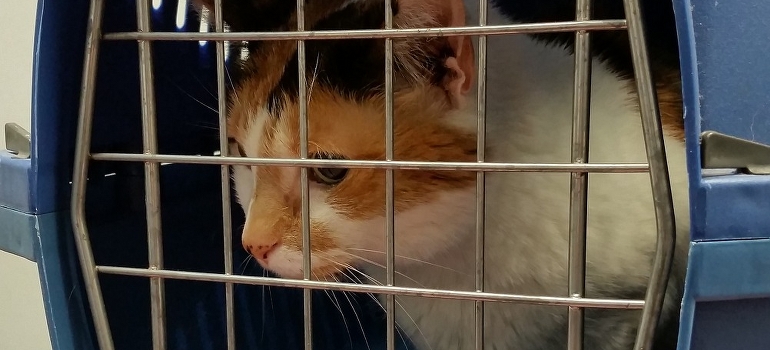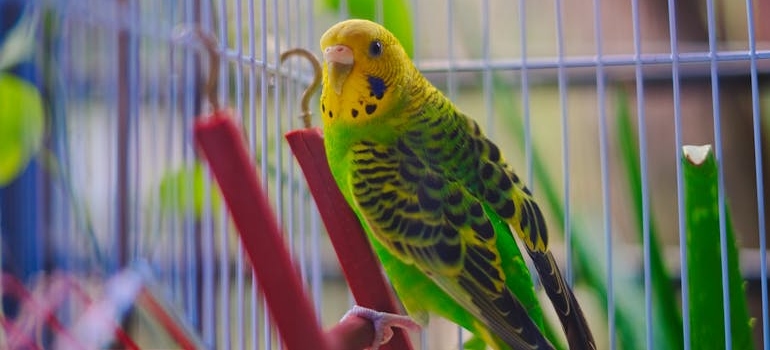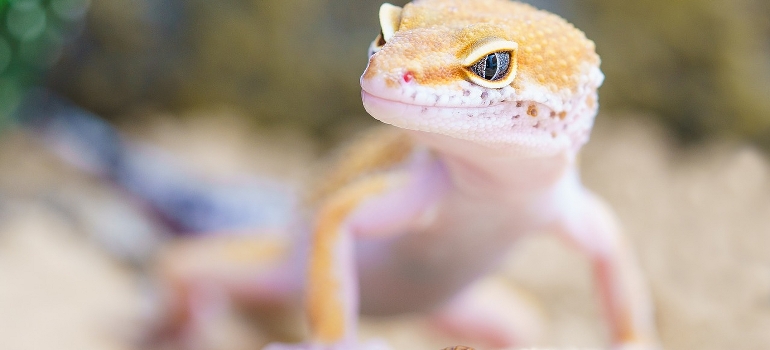How to Help Pets Adapt to Relocating to Lynnwood
Relocating to a new city can be both exciting and stressful. While you may be busy planning logistics and settling into a new home, it’s important to remember that moving can also be a challenging experience for your pets. Pets are creatures of habit who thrive on routine, and the sudden disruption caused by moving can cause stress, confusion, and even behavioral changes. Thankfully, with the right preparation, patience, and knowledge, you can make the relocation process as smooth as possible for your furry friends. Lynnwood, Washington, is a pet-friendly city with plenty of amenities, services, and community resources designed to welcome your pets. From proper travel practices to setting up a comfortable environment in your new home, this Hansen Bros Moving & Storage guide will walk you through every step of how to help pets adapt to relocating.
Preparing for the Move
The weeks leading up to a move are a critical time for preparation. Pets, like humans, benefit from gradual acclimation and thoughtful planning to minimize stress. They are remarkably intuitive and can pick up on the emotions and activities surrounding a move. Dogs might become hyperactive or clingy, while cats may hide or become aloof. The goal during this phase is to maintain as much normalcy as possible while gradually introducing the idea of change.
Assessing Your Pet’s Needs
Understanding your pet’s unique needs is the first step in planning your relocation strategy. For example:
- Dogs require exercise, mental stimulation, and regular outdoor breaks during the journey.
- Cats need a quiet, secure space to reduce anxiety.
- Small mammals and reptiles often require special carriers, temperature controls, or humidity adjustments during travel.
If you own multiple pets, consider how they may affect each other’s stress levels during the move. For instance, a highly anxious dog may upset a calmer cat, so you might need to keep them separate during the journey.

Veterinary Check-Up and Health Preparations
Schedule a veterinary visit at least a month before your move. Use this opportunity to:
- Update Vaccinations: Some cities or states have different pet health requirements. Ensure your pet meets these before relocating.
- Obtain Health Certificates: Airlines and some states may require proof of a recent health check for entry.
- Refill Medications: If your pet takes regular medications, stock up to avoid running out during the move.
- Ask About Anxiety Solutions: Discuss whether your pet would benefit from natural calming aids, pheromone sprays, or prescription sedatives.
Another thing that you need to consider while you are at your vet is the laws and regulations regarding pet import and export in the state of Washington. Also, make sure to transfer your pet’s health records to a veterinarian in Lynnwood once you’ve arrived.
Familiarizing Your Pet with Packing and Carriers
Pets are highly attuned to changes in their environment. To reduce their anxiety:
- Gradually introduce the sights and sounds of packing over several days or weeks.
- Allow your pet to explore their travel carrier and reward them with treats for going inside. This makes the carrier feel safe and familiar.
For cats, leave the carrier in their favorite room and add familiar-smelling items, such as a blanket. This turns it into a positive space rather than a source of stress.
Understanding the Emotional Impact on Pets
For pets, moving is not just a physical change—it’s an emotional one. They lose familiar sights, smells, and routines that give them comfort. For example, dogs might miss their favorite walking routes, while cats might feel unsettled without familiar hiding spots. Recognizing these feelings and addressing them with empathy can make a big difference and help pets adapt to relocating more easily.
Start by maintaining your pet’s daily routine as much as possible, even as you prepare for the move with moving companies Lynnwood WA offers. Feed them at the usual times, take them for walks as scheduled, and spend quality time with them. This stability reassures them that while things are changing, their bond with you remains constant.
Packing Gradually to Avoid Anxiety
The process of packing can be unsettling for pets, especially as furniture disappears and boxes pile up. To minimize stress, pack your home in stages rather than all at once. Begin with areas your pet rarely uses and leave their favorite spaces untouched until the last moment.
Avoid packing away their toys, bedding, and other comfort items too early. These objects carry familiar scents that provide a sense of security. Keeping these items accessible during the move can help ease your pet’s anxiety.

Traveling to Lynnwood
The journey to Lynnwood is often the most physically challenging part of the move. Whether you’re traveling by car, plane, or another method while your interstate movers Seattle transfer your belongings, your pet’s comfort and safety should be top priorities.
Creating a Calm Travel Environment
Pets often associate travel with stressful events, such as trips to the veterinarian. To counteract this, make the journey as calm and comfortable as possible. Use carriers or crates that are spacious enough for your pet to turn around and lie down, and line them with soft bedding to provide a cozy retreat.
Speak to your pet in a soothing tone throughout the journey and avoid sudden loud noises or movements. Offering small treats or using calming pheromone sprays can also help create a relaxed atmosphere.
Preparing for Different Modes of Travel
For car travel, create a secure space for your pet in the back seat using a seatbelt harness or a secured crate. It prevents accidents and keeps them safe in case of sudden stops. Bring plenty of water and take regular breaks for exercise and bathroom needs, especially for dogs.
If you’re flying, research airline policies well in advance. Many airlines allow small pets to travel in the cabin, but larger pets may need to fly in the cargo hold. This can be a stressful experience, so it’s important to choose an airline with a good reputation for pet care.
Settling into Lynnwood
Arriving in a new city with your Washington movers is an exciting milestone, but it can also be overwhelming for your pet. The unfamiliar sights, sounds, and smells may cause anxiety or confusion. Your role as a pet owner is to guide them through this adjustment period with patience and care.
Introducing Your Pet to the New Home
When you first arrive, prioritize setting up a space that feels familiar to your pet. Choose a quiet room where you can place their bedding, food, and water dishes. This serves as their safe zone while they acclimate to the new environment.
Allow your pet to explore the home at their own pace. Dogs may eagerly sniff around, but cats might prefer to hide initially. Respect their need for space and avoid forcing them into new areas before they’re ready.
Building a Routine in the New Environment
Routine is a powerful tool to help pets adapt to relocating. Establishing a consistent schedule for feeding, walks, and playtime reassures your pet that life is returning to normal. Try to stick to the same times you followed before the move.
For dogs, begin introducing them to the local neighborhood through short walks. Explore nearby parks and walking trails, such as Lynndale Park, which offers plenty of open space and natural beauty. Cats may benefit from gradual exposure to outdoor areas if they’re accustomed to venturing outside.

Helping Pets Adjust Emotionally
Even after the move with trustworthy moving services in Seattle is over, pets may exhibit signs of stress, such as changes in appetite, excessive vocalization, or destructive behavior. These are normal reactions, and with time, they usually subside. However, proactive steps can help your pet regain their confidence and sense of security.
Recognizing Stress Signals
Pets communicate stress through body language and behavior. Dogs may pant excessively, pace, or whine, while cats might hide, refuse to eat, or over-groom. It’s important to recognize these signals and address the underlying causes.
Offer plenty of reassurance in the form of gentle petting, soothing words, and playtime. Avoid scolding your pet for stress-related behaviors, as this can increase their anxiety. Instead, use positive reinforcement to encourage calm and relaxed behavior.
Socializing in the Lynnwood Community
Lynnwood’s pet-friendly community offers plenty of opportunities for socialization. Take advantage of dog parks and pet-friendly events to help your dog meet other animals and people. Socialization isn’t just beneficial for dogs—it also helps owners build connections with fellow pet lovers.
Cats, while less social by nature, can still benefit from mental stimulation and interaction. Create an engaging environment with climbing structures, interactive toys, and opportunities to watch birds or squirrels from a window perch.
Making Lynnwood a Forever Home
Moving isn’t just about relocating—it’s about creating a new life for you and your pet. Lynnwood offers countless opportunities to help pets adapt to relocating there! And build a fulfilling and enriching experience for your furry family members.
Exploring Pet-Friendly Amenities
Lynnwood boasts a variety of pet-friendly amenities, including parks, trails, and businesses that welcome leashed pets. Spend time exploring these spaces to help your pet feel at home in their new surroundings.
Parks like Scriber Lake Park offer serene environments for walks, while local pet stores provide access to high-quality food, toys, and supplies. Participating in community events, such as adoption fairs or charity runs, can further integrate you and your pet into the Lynnwood community.
Investing in Long-Term Comfort and Enrichment
Beyond the basics of food and shelter, invest in your pet’s long-term well-being by focusing on enrichment. Dogs thrive on activities like agility training, hiking, and interactive play. Cats, meanwhile, benefit from vertical spaces, puzzle feeders, and sensory stimulation.

Small Pets and Exotic Animals
Small pets and exotic animals, while often overlooked during the hustle of moving, require just as much attention and care as larger pets like dogs or cats. These animals are particularly sensitive to environmental changes, as many rely on stable conditions to thrive. For example, reptiles and amphibians may require strict temperature and humidity controls, which can be disrupted during the move. Setting up their habitat as soon as possible after relocation is essential to avoid stress-related illnesses.
Interaction is another critical aspect. While small pets like guinea pigs or rabbits may seem content in their enclosures, they require regular human engagement to maintain their mental health. Dedicate time each day to handling or playing with them, using interactive toys, or providing enrichment items like chew toys or tunnels.
In addition, relocating can be a perfect opportunity to upgrade their habitat. A larger enclosure or new accessories like perches, climbing structures, or bedding material tailored to their specific needs can help them feel more secure and enriched in their new environment. Regular veterinary checkups for these pets are also crucial, as their health issues can often go unnoticed until they become serious. Small pets and exotic animals can quickly adapt to and thrive in their new surroundings by ensuring their physical and emotional well-being.
Bond With Your Pet in a City That Welcomes You Both
Relocating with a pet is not just about moving from one place to another; it’s about bringing a piece of home along with you. The transition can be a bonding experience, one that deepens your relationship as you navigate the challenges and joys of settling into a new environment. By preparing thoughtfully, traveling safely, and creating a welcoming space in Lynnwood, you set the stage for your pet to not only adjust but thrive in their new surroundings.
With its pet-friendly parks, services, and community, Lynnwood offers an ideal backdrop for this new chapter. As your pet grows accustomed to their new home, you’ll share many moments of discovery, from walks in the beautiful local parks to forming connections with fellow pet owners. Moving is never easy, but the rewards when you help pets adapt to relocating and seeing your companion happy and secure in their new life make it all worthwhile.
Why Choose Us
History
Hansen Bros. Moving & Storage is locally owned and operated by the same family for four generations, since 1890. We have a well-established reputation for service quality and reliability with a high percentage of repeat household and commercial clients.
Professionalism
We’re a certified ProMover by the American Moving and Storage Association with A+ rating with the Better Business Bureau, voted “Best in Western Washington” in 2009 and from 2011 to 2016 by KING5. Our company is fully licensed and insured and member of WMC and AMSA.
Value
Hansen Bros. Moving & Storage provide free, no-obligation in-home estimate and competitive rates, including low minimum rates for shipments moving under 300 miles. We’ve set a refund policy for unused packing materials and three Puget Sound locations to help clients save on travel fee costs.



